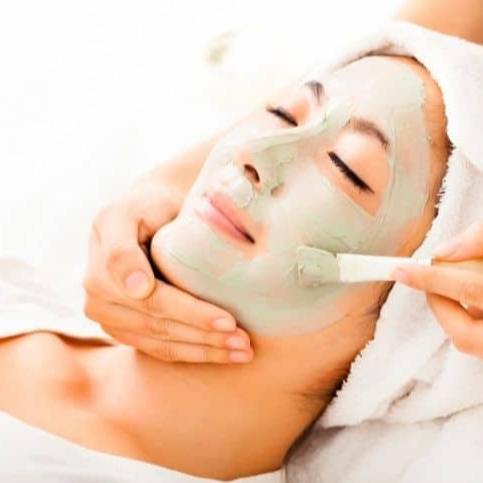Healthy and radiant skin greatly impacts our beauty, but achieving healthy and clear skin requires care and attention. While there are numerous methods and chemical products for skin care, clay, despite its plain appearance, is increasingly used as a mask and skin booster. Clay is a soft, fine-grained mineral substance that varies in composition depending on its type and may contain magnesium, calcium, iron, silica, and potassium. This type of clay, typically found in volcanic ash and sediment deposits, detoxifies impurities such as bacteria, viruses, toxins, and fungi, making it suitable for normal and oily skin types. When mixed with an appropriate amount of water, clay becomes a soft paste. Using a clay mask can help treat acne, allergic skin reactions, and sunburn effects. Clay masks boost collagen production, enhance skin elasticity, balance oil levels, and strengthen the skin’s structure.
Which Clay is Right for Your Skin?
Bentonite Clay
Bentonite clay, derived from volcanic ash, is slippery in nature and commonly used in shaving soaps. This clay, with its oil-absorbing properties, facilitates razor movement on the skin. Bentonite clay is excellent at absorbing water and oil, making it a suitable choice for very oily skin.
If you're unsure about your skin type or the appropriate clay, bentonite clay, being the most versatile clay, can be beneficial. A bentonite clay mask absorbs excess oil while tightening the skin simultaneously.
Brazilian Clay (Natural, Dark Red, Pink, Purple, and Yellow)
Brazilian clays, also known as Kaolin clay, are naturally colored due to the presence of various minerals. These clays have moderate absorbency and are suitable for all skin types.
French Green Clay
Originally extracted from southern France, this clay is often used in facial masks to absorb oil and color due to its exceptional oil absorption properties. French green clay appears bright green because of decomposed plant material and iron oxides and is ideal for oily skin types.
This marine clay has antibacterial and anti-inflammatory properties, making it effective for treating sunburned skin, wounds, and skin sensitive to allergens.
Kaolin Clay
Kaolin clay is a finely powdered clay with a soft texture and comes in various colors. The most common color is white. This clay is used in many cosmetic and personal care products, including eyeshadows and soaps. With its low liquid absorption, it is suitable for dry and sensitive skin. Moroccan red kaolin clay, extracted from the Moroccan mountains, stimulates blood circulation, cleanses pores, and is ideal for sensitive skin.
Rhassoul Clay
Similar in appearance to Moroccan red clay, Rhassoul clay is rich in potassium, magnesium, calcium, and sodium. This clay, extracted from eastern Morocco, contains a higher percentage of magnesium and silica and has an extremely soft texture. Rhassoul clay is used for firming and rejuvenating skin that has lost its elasticity and needs deep exfoliation. Its high water absorption capacity helps retain skin moisture.
Green Zeolite Clay
Zeolites are fine porous minerals formed when volcanic rocks and ash react with alkaline groundwater. Green Zeolite clay has a coarse texture and high absorbency compared to other clay masks. Its unique texture provides gentle exfoliation, making it suitable for normal to oily skin types.
Rose Clay
Rose clay is a type of kaolin clay with a soft texture and a light pink hue (due to iron oxide in its composition). This clay is used in soap making due to its beautiful color and oil-absorbing properties, and it is ideal for dry skin.
Sea Clay
Sea clay is derived from mud found in the depths of the sea. It is dark green and gray in color and is typically used in facial masks for cleansing the skin. Sea clay is suitable for normal to oily skin types.
After selecting the right clay for your skin, you can prepare and use your desired mask by mixing equal parts of the chosen clay with any of the following ingredients:
- For sensitive skin: Use plain yogurt, water, or cooled chamomile tea.
- For oily or acne-prone skin: Use raw apple cider vinegar, witch hazel (a plant from the Hamamelidaceae family native to North America), or raw honey for their antibacterial and antimicrobial properties to control oil production.
- For dry or wrinkled skin: Use rosehip seed oil, cooled green tea, or mashed avocado for their hydrating and detoxifying properties to repair the skin.
These masks should be applied to the skin for 10 minutes and then rinsed off with warm water.
Sources:
healthline.com, webmd.com, www.soapqueen.com, helloglow.co












Our Customers' Comments
No comments registered